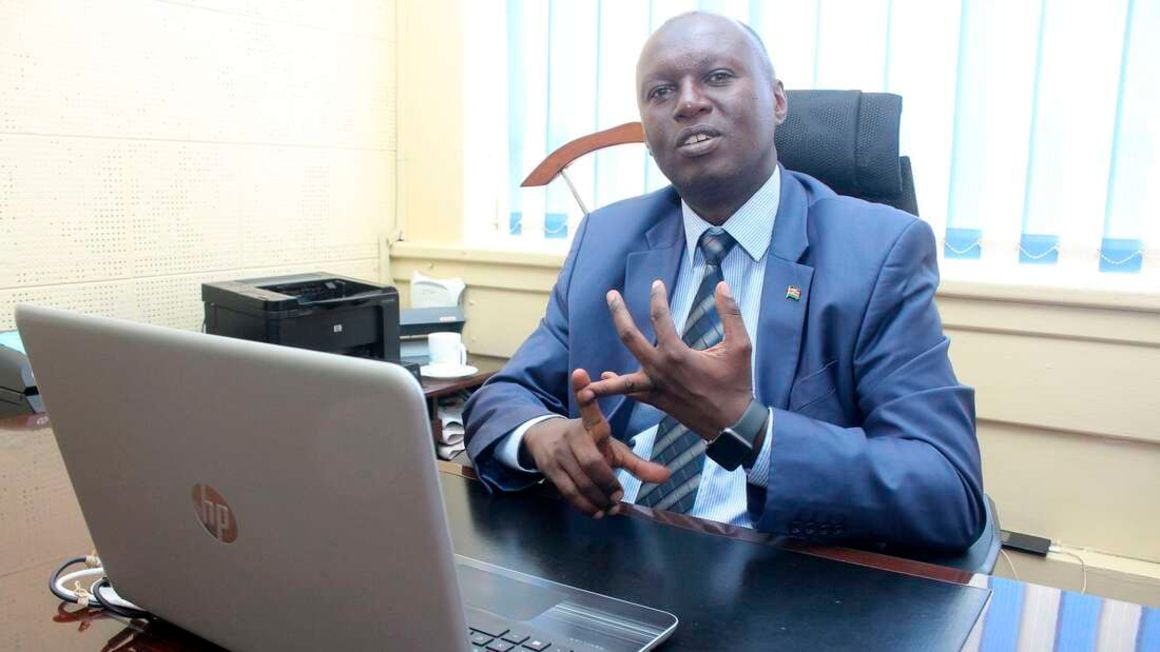
Peter Macharia, Jijenge Credit Limited Managing Director. FILE PHOTO | NMG
When Peter Macharia settled on starting a micro-lending company some seven years ago, he had no experience in running own business, neither did he have a mentor. All he was banking on was his work experience of more than 25 years and a desire to boost access to credit for micro-enterprises.
Prior to starting Jijenge Credit, he had toyed with at least five business ideas including operating a hotel, a hardware and a spare-parts shop.
“After doing strength, weakness, opportunities and threats (SWOT) analysis for each business, the microcredit venture proved to be more viable,” he says.
Armed with Sh1 million, Mr Macharia set up the company, starting off in Westlands’ Business Park, Nairobi, before relocating to the central business district because of customer logistics and convenience.
The Sh1 million which was part of his early retirement package enabled Jijenge to lend to microbusinesses small amounts of below Sh20,000 with repayment period ranging from one day to one-month.
At the time, his main clients were the mama mbogas in Kibera, Kawangware, Marikiti and Gikomba markets who bought their stock in the morning then repay the loan by evening.
“We would lend to around 100 women who would have sold their vegetables, made their profit and paid back the loan,” says the 51-year-old who holds a Master’s in Business and Administration from the Kenya Methodist University.
At the time the company started, banks were charging interest rates of up to 27 percent on loans, discouraging small traders from accessing credit facilities. This favoured the growth of Jijenge.
Its business model however proved cumbersome as the risk was too high and it required tens of employees to literally comb the streets daily doing collections of loans that were due.
Mr Macharia thus flipped the model to incorporate the use of a banking software, added small and medium enterprises to its target clients list and preferred logbooks and title deeds as securities.
The new model required a huge capital outlay since the maximum credit was Sh10 million.
The former banker notes that his background in banking industry has played a major role in the success of the business that currently has 25,000 customers.
“I did not have a mentor apart from my skills and knowledge for microfinance, yet opted for this because I never required any further training,” he says.
Last year, the microlender got the green light to roll out a digital interface check-off system targeting government employees for loan offers against their payslips.
Jijenge, which currently serves the entire country and parts of Tanzania, says it targets to loan out up to Sh200 million to the civil servants drawn from various ministries and parastatals.
The deal with the government was inked amid the Covid-19 pandemic that sparked a health crisis and disrupted businesses following movement restrictions and dusk-to-dawn curfew in a bid to combat the spread of the virus.
Introduction of the digital interface check-off system, Mr Macharia says, was informed by a steady rise in demand for loans witnessed since the easing of movement restrictions in July, as more individuals and businesses took up loans to manage their operations.
To avoid sinking into insolvency, the microlender varied its security margins to accommodate more customers while staying afloat.
Today, the biggest business for Jijenge is the secured segment as this helps hedge its funds against risks given that the micro-lender borrows from local banks.
The firm’s customer portfolio comprises 80 percent micro, small and medium enterprises while the remaining 20 percent are employees of various companies.
The shift to the digital from the brick-and-motar model is bearing fruits as it has recorded customer growth. The agents in various parts of the country report their work virtually, reporting to regional managers based in Nairobi. Currently, the firm is shopping for a bigger space within the CBD where it can accommodate its regional managers.
During the pandemic, the micro lender supported its customers by way of moratorium, restructuring of loans and offering free business consultancy services.


No comments:
Post a Comment